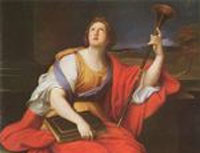| School of History |
|
||||||||||

Contacts School Website Overview The School of History at UNSW has long been distinguished by its comparative and transnational approach to history and now offers, in addition, world history at both the first year and upper levels. While ours is basically a School of Modern History, with a strong emphasis on the last 200 years, world history incorporates the ancient history of Egypt, Rome and China alongside the study of other civilisations and, at upper level, we offer specialised courses on the Middle Ages and the history of ancient Greece and Rome.
If you decide to study history at UNSW, you will find a great variety of courses. In first year, you have a choice of courses in early-modern European history; 18th, 19th and early 20th century Australian history including Aboriginal studies; world history; Australian/United States history of the Sixties; and Asian history focussing on crisis points in the 20th century like Vietnam, China or Japan. In the second and third years of study, the choice is even wider as you will be able to select from a variety of options, which explore important themes in modern history. These include "race" relations, gender studies, film and history, revolutions, colonialism and post-colonialism, environmental history or international relations. You can also study more courses focussing on a region or nation, like the USA, China or Japan, Europe, modern Australia and Southeast Asia. For further information on the School and its programs of study please refer to the relevant discipline entry in this online Handbook or refer to our website.
|
|||||||||||

| Contacts | Library | myUNSW | WebCT |